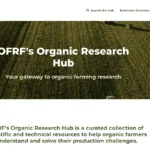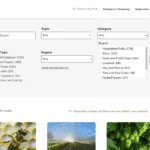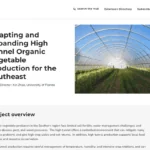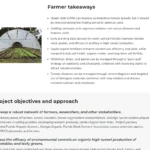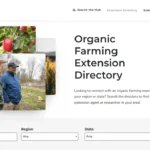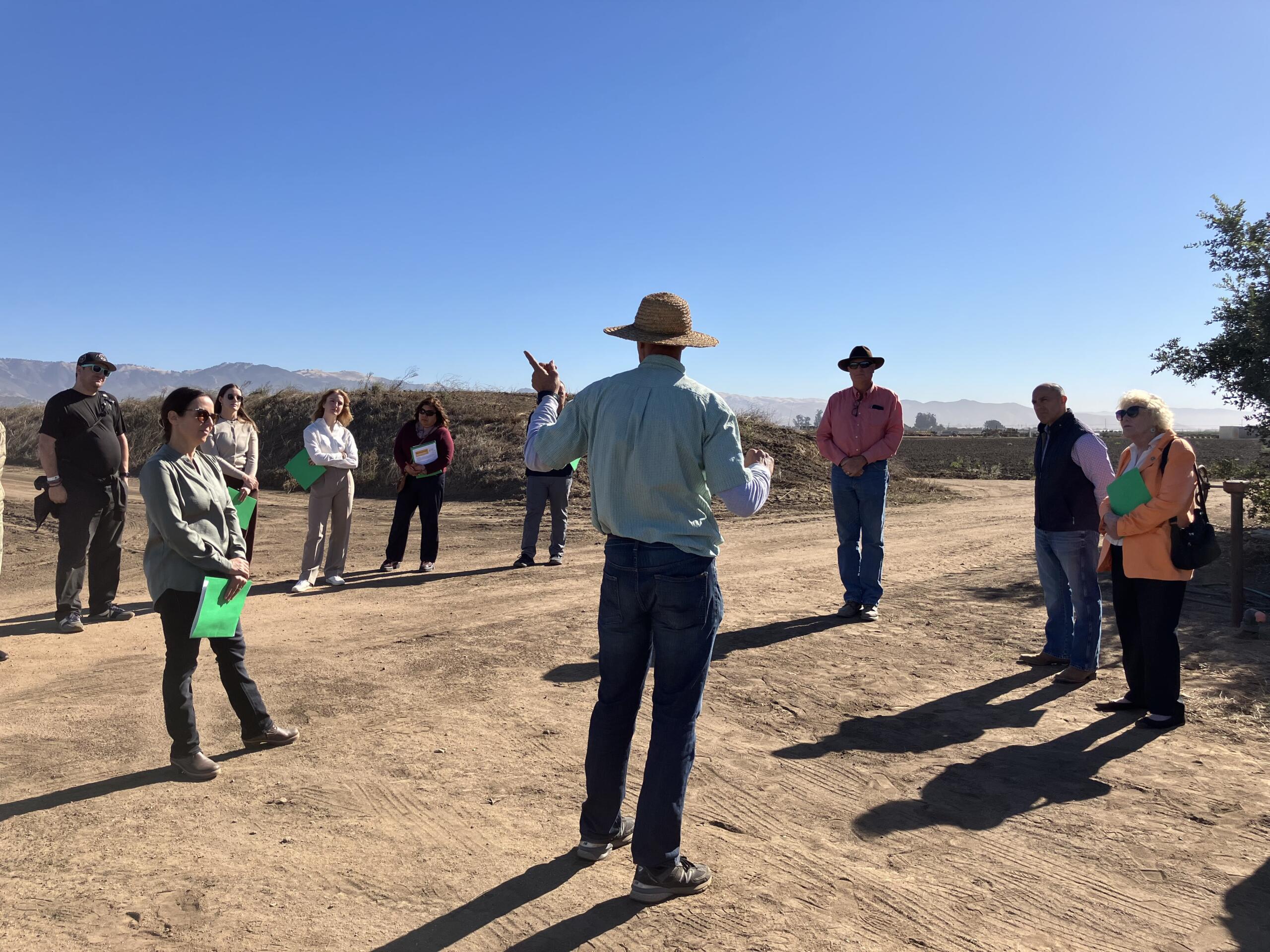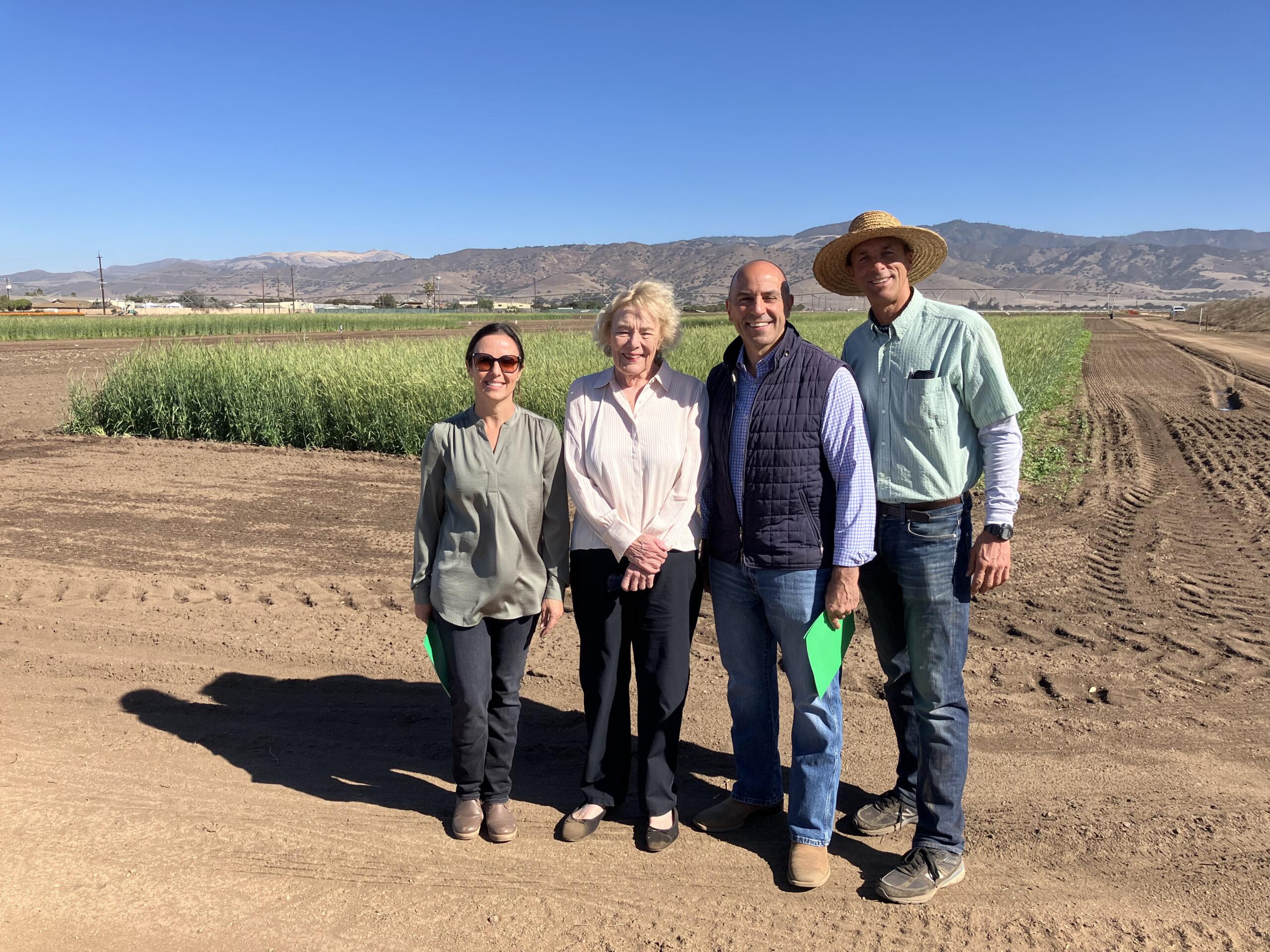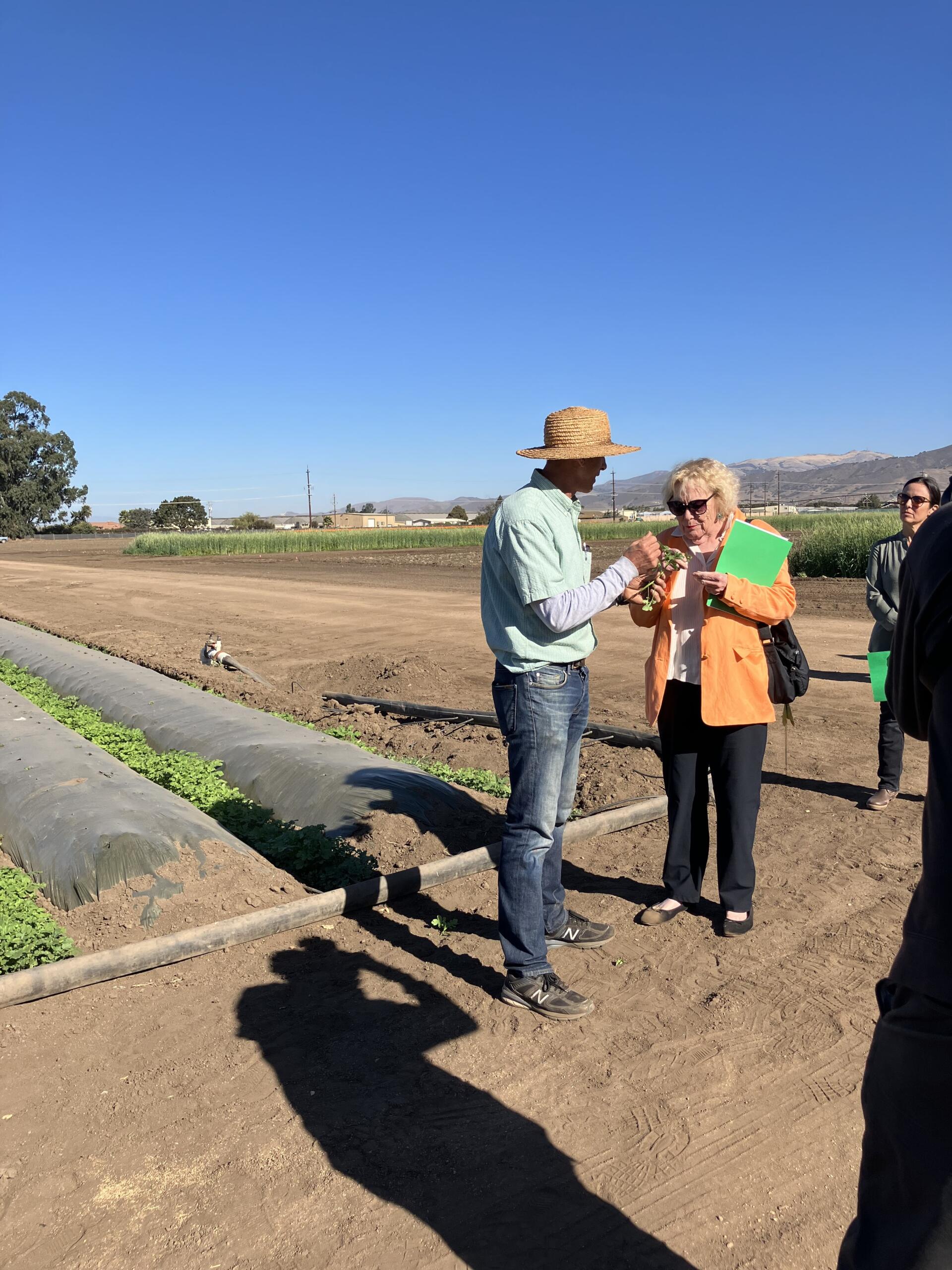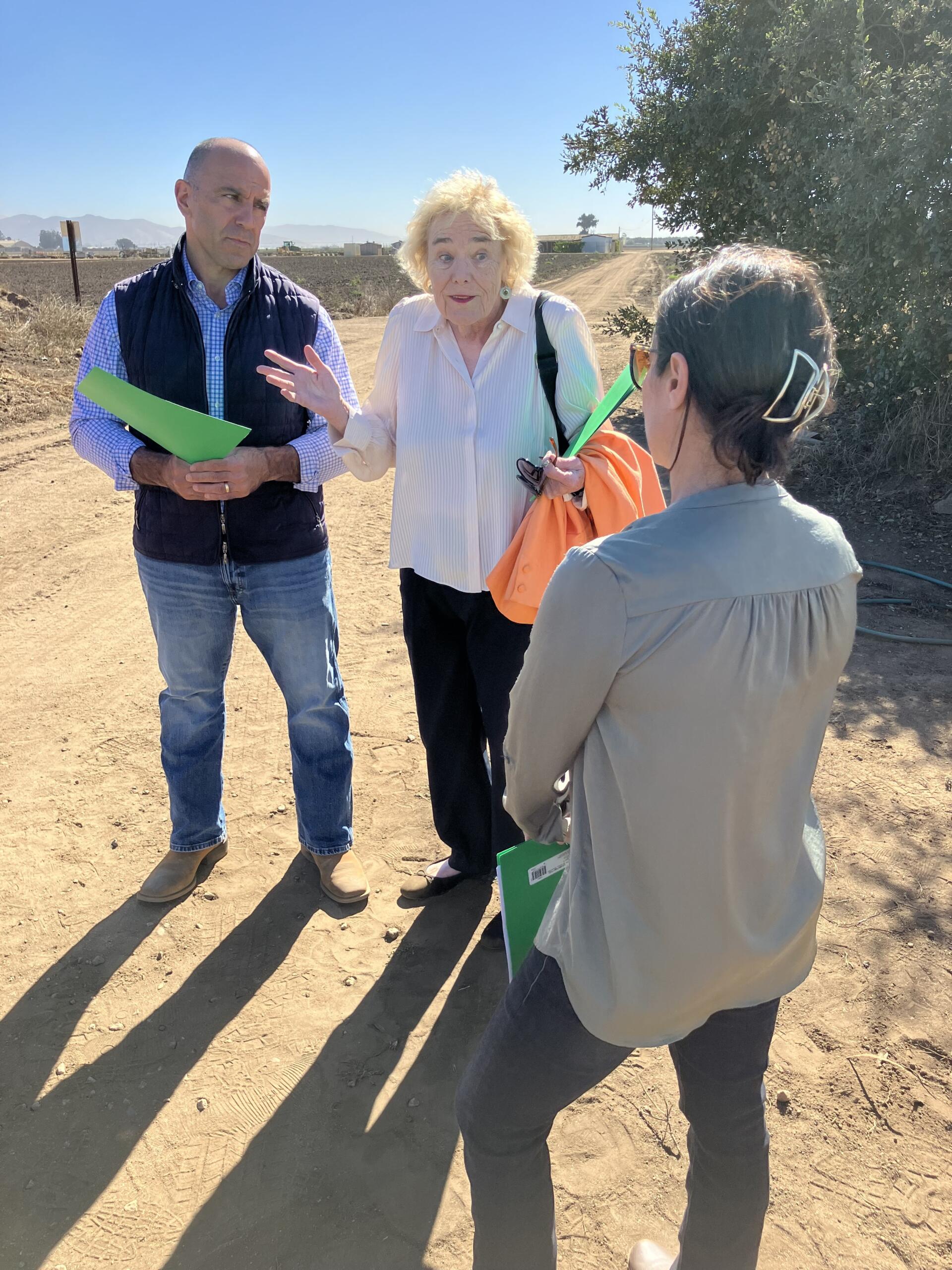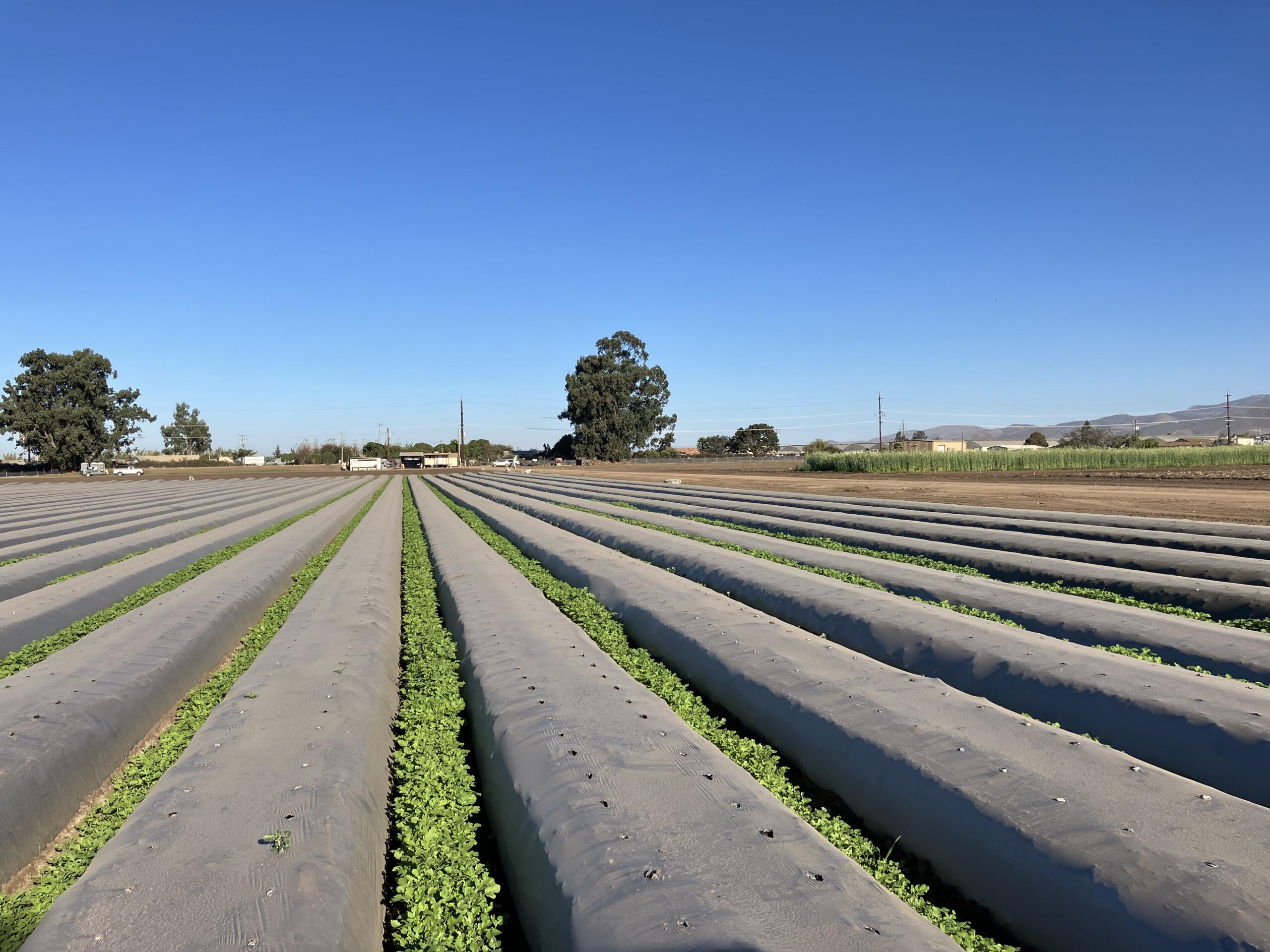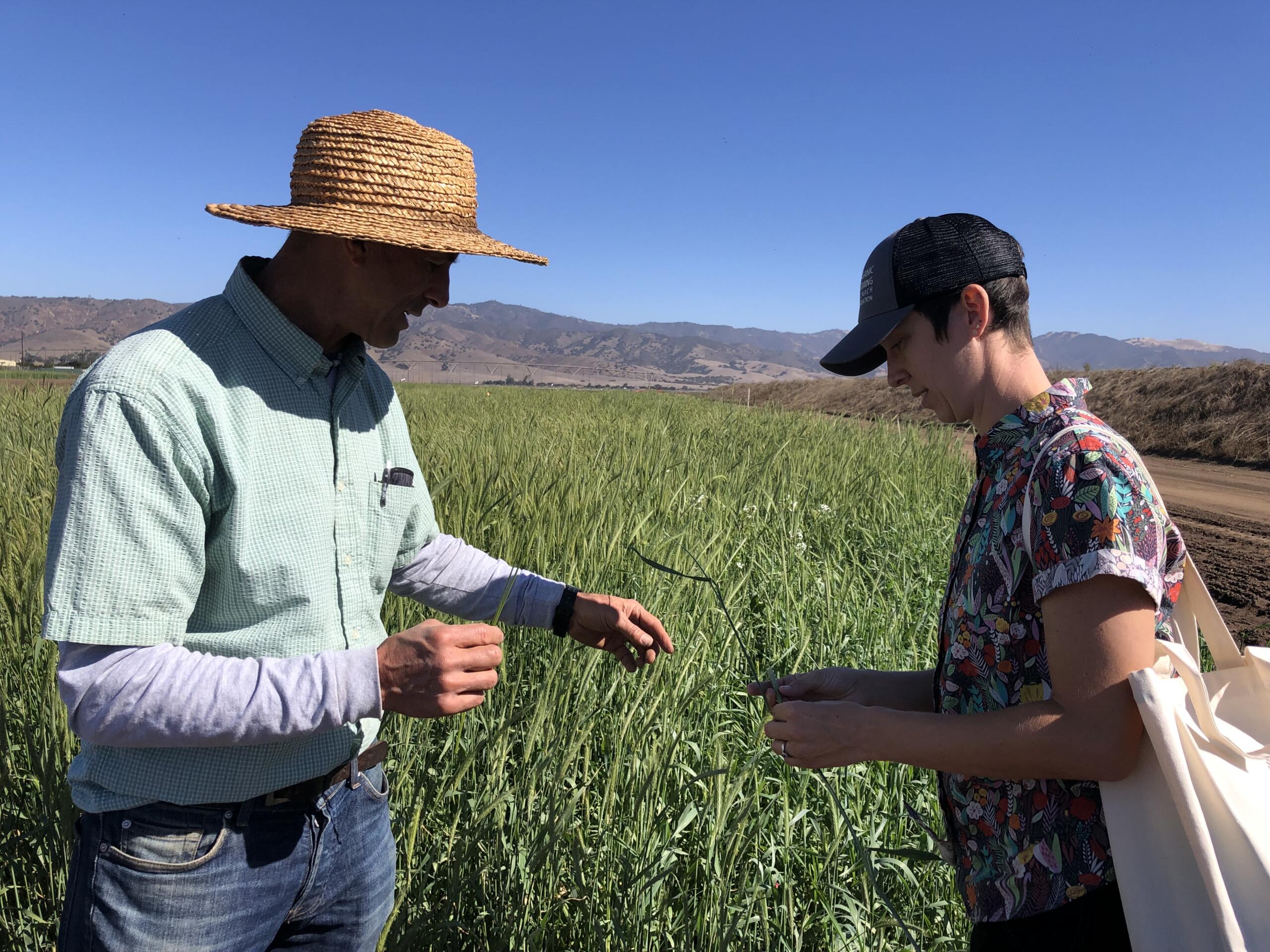FOR IMMEDIATE RELEASE
Farmer-Led From the Start and for the Future
SANTA CRUZ, Calif., March 4, 2025 — The Organic Farming Research Foundation (OFRF) has selected the seven inaugural members of a new Organic Stewardship Council (OSC). Composed of farmers from different regions, agricultural backgrounds, and diverse farming communities, as well as representatives from farmer associations, these stewards bring together diverse voices to shape OFRF’s work and elevate the priorities of organic and transitioning farmers nationwide. The formation of this advisory council strengthens OFRF’s long-standing commitment to taking its lead from farmers.
“By formalizing this advisory body, we are creating an enduring structure that empowers farmers to guide and shape our work at every level. We are thrilled to bring together this council of experienced voices who understand the challenges and opportunities in organic farming,” said OFRF Executive Director Brise Tencer.
Following a competitive nomination and review process, and approval from OFRF’s Board of Directors, OFRF is pleased to introduce the new OSC members:
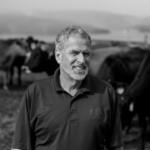 Albert Straus, Straus Family Creamery (California)
Albert Straus, Straus Family Creamery (California)
Albert is the founder and executive chair of Straus Family Creamery, the first 100% certified organic creamery in the United States. He founded the Creamery in 1994, while his farm, the Straus Dairy Farm, became the first certified organic dairy west of the Mississippi River. He brings decades of leadership experience in sustainable organic farming practices.
Anna Jones-Crabtree, Vilicus Farms (Montana)
Anna and her husband Doug own and manage Vilicus Farms, a first-generation, organic, 12,500-acre dryland crop farm in Northern Hill County, Montana, growing a diverse array of organic heirloom and specialty grain, pulse, oilseed, and broadleaf crops under five- and seven-year rotations. Anna holds a Ph.D. in Civil and Environmental Engineering with a minor in Sustainable Systems from Georgia Institute of Technology.
Brooke Gentile, Organic Association of Kentucky (Kentucky)
Brooke joined the Organic Association of Kentucky (OAK) in 2017 as the executive director and manages the KY Farm Share Coalition. Born and raised in Kentucky, she has worked with sustainable agriculture projects in New York City, Northern California, Indiana, and Kentucky. Brooke cares deeply about building a regional food system that supports our farmers, is regenerative for our lands, and is healthy and accessible for consumers.
John McKeon, Taylor Farms (California)
John is the Director of Organic Integrity and Compliance at Taylor Farms Retail, overseeing organic compliance and regenerative organic practices. He has worked at Taylor Farms and Earthbound Farm for 15 years in organic field and facility food safety, international organic supply chain compliance, and organic agricultural operations. John also spent 10 years at CCOF, from an intern to certification director and then inspector. He studied horticulture, sustainable agriculture, and environmental studies at Cabrillo College and the University of California Santa Cruz.
Jordan Settlage, Settlage & Settlage Farms (Ohio)
Jordan is a dairy farmer with Organic Valley Cooperative, based in St. Marys, Ohio. Farming alongside his father, he manages 500 acres of certified organic land and cares for a herd of 300 cows. Though he didn’t grow up on a dairy farm, Jordan has been involved in dairy since childhood and became certified organic in 2016. With a strong emphasis on grazing, he is passionate about regenerative agriculture and is dedicated to improving the overall agricultural system.
Leonard Diggs, Pie Ranch (California)
The Director of Operations and Farming Education at Pie Ranch in Central California, Leonard has managed sustainable and organic farms in northern California for over 30 years, including a 365-acre college farm with annual and perennial crops, a winery, livestock, and a mixed species forest. He has also instructed a wide range of agricultural classes and served on numerous agricultural boards and committees in an effort to share his experiences with current and future generations of gardeners and farmers.
Meg Moynihan, Derrydale Farm (Minnesota)
Meg is a certified organic dairy farmer in Le Sueur County, Minnesota, where she and her husband milk about 60 cows and direct market beef from Derrydale Farm. Born and raised in Milwaukee, Wisconsin, and Nashville, Tennessee, Meg earned her B.A. from Brown University and an M.S. in Agronomy from the University of Minnesota. Her experience includes leading the Minnesota Department of Agriculture’s Organic Program, directing a statewide sustainable agriculture program in Michigan, working as an educator and evaluator, participating in the National Association of State Organic Programs, and serving on the board of directors for the Organic Field School in Farmington, Minnesota. Meg also formerly served as president of OFRF’s Board of Directors.
The Council will offer invaluable feedback and recommendations to OFRF’s Board and staff across a range of areas, including:
- Shaping OFRF’s programs by offering insight into educational resources, research priorities, and policy advocacy to ensure they align with the needs of organic and transitioning farmers.
- Voicing farmer perspectives by elevating on-the-ground realities and challenges farmers face to guide OFRF’s strategic direction.
- Evaluating the impact and providing feedback on the relevance and effectiveness of OFRF programs.
- Addressing emerging agricultural issues, including the National Organic Research Agenda (NORA), feedback on OFRF’s new Organic Research Hub, and Farm Bill priorities.
With this Council, OFRF continues to lead with the voices of organic farmers and create innovative pathways to advance the adoption of organic farming systems that prioritize climate resilience, soil health, and sustainability.
For more information about OFRF and its initiatives, visit www.ofrf.org.
##
About the Organic Farming Research Foundation
The Organic Farming Research Foundation (OFRF), headquartered in Santa Cruz, California, with a remote team based across the U.S., works to foster the improvement and widespread adoption of organic farming systems. OFRF cultivates organic research, education, and federal policies that bring more farmers and acreage into organic production. For more information about OFRF, please visit our website: www.ofrf.org.
Contact:
Ashley Dulaney, Communications Director, OFRF
ashley@ofrf.org




